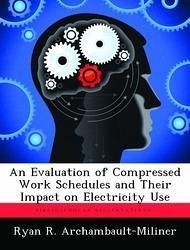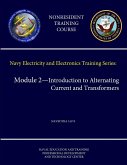As the largest energy consumer in the United States, the Department of Defense must consider all fiscally responsible means to improve energy efficiency. Budgetary and environmental concerns are a catalyst for numerous initiatives designed to reduce energy consumption. Congressional mandates outline the rate at which agencies must reduce facility energy use. In this study, Monte Carlo simulation was used to compare electricity consumption, cost, and emissions produced under 5-day workweeks and compressed work schedules. The research provides energy managers a template for evaluating compressed work schedules as a means to improve energy efficiency. The study found the relationship between the amount of electricity consumed on duty and non-duty days determines the effectiveness of compressed work schedules in improving energy efficiency. Electricity use in the test facilities on non-duty days was 72 to 90 percent of duty-day consumption.
Hinweis: Dieser Artikel kann nur an eine deutsche Lieferadresse ausgeliefert werden.
Hinweis: Dieser Artikel kann nur an eine deutsche Lieferadresse ausgeliefert werden.








